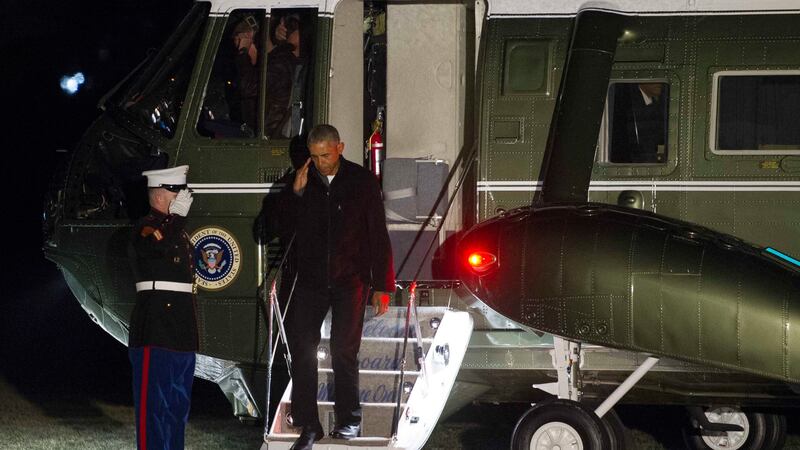TUESDAY night’s address in Chicago by US president Barack Obama wasn’t just a valedictory speech for his two-term tenure.. It was also a final farewell to the art of value-based oratory in the White House.
Many criticisms can be levelled at President Obama. But he has always demonstrated the charismatic ability to inspire and empower citizens, translating positive ideas into profound words. He’s shown an awesome capacity to conjure dreams and craft ambitions; communication capturing imagination.
That’s partly how he harnessed the most excluded sectors of American society into backing his presidency. (That, and his experience of hard graft as a community, political and legal activist.)
On Tuesday night he intended to once again emphasise the centrality of citizenship and collectivity in improving society. And he was aiming to elevate the importance of an active commitment to the ethos and value of “public service”.
President Obama’s speech was trailed as a spectacle, with thousands spending hours queueing for tickets in Chicago’s bitter frost early on Saturday morning. But on Friday it was Michelle Obama whose captivating leadership style shone through. In her farewell address she spoke from the heart to young people, arguing fervently in favour of inclusion and participation.
“Our glorious diversity - our diversities of faiths and colors and creeds - that is not a threat to who we are, it makes us who we are,” she said.
“If you or your parents are immigrants, know that you are part of a proud American tradition: the infusion of new cultures, talents and ideas, generation after generation, that has made us the greatest country on earth.
“If you are a person of faith, know that religious diversity is a great American tradition, too... And whether you are Muslim, Christian, Jewish, Hindu, Sikh - these religions are teaching our young people about justice and compassion and honesty.
“So that's my final message to young people as First Lady. It is simple. I want our young people to know that they matter, that they belong. Lead by example, with hope, never fear.”
Powerful stuff, and words of affirmation that young people around the world need to hear everyday. As often as possible.
(And if evidence is needed, just read The Prince’s Trust Macquarie annual Youth Index published this week. Young people’s self-confidence, happiness, and emotional well-being are at their lowest in seven years, and worsened by political and economic instability.)
No doubt cynics will sneer. They’ll argue about fluffy words versus flawed deeds. Promises versus outcomes. Dreams versus defeats. Courage versus compromise. Inspiration versus inequalities.
They’ll pontificate that empowering words are just a three-card trick to distract from harsh realities. They’ll lecture that all politics is poisoned by self-interest. They’ll count change in minutes rather than generations. Understandable, to an extent.
But sometimes the simple truth of an idea is purer than the forensic analysis of an ideologue. And the simple truth is this.
Public service is not merely a state institution for delivery. It is a tremendous idea – a powerful and potent concept; the most effective vehicle available for sustainable social change.
By contrast, President Obama’s successor, Donald Trump, is the paragon of private enterprise. He holds the rhetorical value of a corner-boy and the oratorical ability of a bully. His words divide and his speeches exclude. And armed with the privatised power of the presidency, his discourse may well demotivate, disempower and destroy the very fabric of US society.
As President Obama leaves the White House, historians will weigh up his role in Syria and settling with Cuba; Obamacare and Guantanamo Bay; gun crime and police racism; and much more.
But his primary positive legacy will be to inspire young, poor African-Americans that they can achieve great things in their lives – without corruption; and to empower them that the integrity of a public service ethos is the greatest tool for transforming modern society.
On Monday, President Obama will mark the final Martin Luther King Memorial Day of his time in office. It’s exactly fifty years since Dr King delivered a landmark speech (12 months before his assassination) arguing for an end to the Vietnam War, and linking international peace with domestic civil rights. Dr King called for a “genuine revolution of values” which means “that our loyalties must become ecumenical rather than sectional”.
If ever there is a time in global history for such an ecumenical “revolution of values” based on renewing a public service ethos, it will be during the next four years of Donald Trump’s reign. We should measure what has gone by what is coming. (Food for thought for us here too.)








